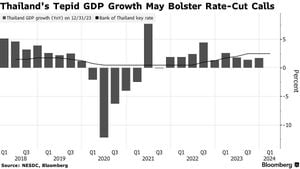BRUSSELS / ANKARA - Thousands gathered in Brussels on Sunday as part of a solidarity demonstration to mark the third anniversary of the Russia-Ukraine war. Protesters condemned Moscow’s attacks and called for justice over alleged war crimes, underscoring the continued urgency for Western support for Ukraine.
The rally, held at Albertina Square, saw attendees chanting slogans such as "No to war" and marching behind banners echoing sentiments like "Stand up, unite, defend Europe," all the way waving Ukrainian flags. The demonstrators demanded greater accountability from Russia for its actions and increased backing for Ukraine from its Western allies.
The current war, which has dragged on for three years, remains one of the most pressing geopolitical issues, with frequent military clashes and diplomatic struggles for resolution. Despite facing extensive international sanctions, Russia continues its operations, and recent high-level meetings signal renewed efforts to address the conflict. According to Anadolu Agency, Ukrainian soldiers are still receiving military and economic aid from the West, reinforcing their stance against aggression.
On the eve of this significant anniversary, Ukraine faced its largest drone attack since the war began. Reports indicated Russian forces launched over 200 drones during the nighttime assault, resulting in President Volodymyr Zelensky condemning what he referred to as "aerial terror" and stressing the necessity for unity among Ukraine’s allies. “Every day, our people stand against aerial terror,” Zelensky stated, pressing for collective international strength to secure “a just and lasting peace.”
The Ukrainian air force noted it had intercepted 138 of the 267 drones, with damage reported across multiple regions of Ukraine. These escalated assaults have been consistent as Moscow appears to be testing Ukraine's air defenses to exhaust their capabilities.
Meanwhile, sentiments among ordinary Russians reflect mixed feelings about their country’s future, especially amid the recent diplomatic discussions between U.S. and Russian officials. Many citizens expressed cautious optimism and hope for the war's end as relations between these global powers evolve. Independent outlets like SotaVision gathered thoughts from streets across Moscow and other cities, where some residents voiced their desires for peace.
The momentum from last week’s high-profile U.S.-Russia talks held in Saudi Arabia has stirred the Russian populace and their political establishment, amplifying expectations for potential resolutions. Some believe these developments might initiate discussions about returning to pre-war normalcy. Ekaterina Schulmann, a prominent sociologist, stated, "There will be universal joy—not because Russia defeated anyone, but because the war has stopped."
Polling data suggests there is growing support among Russians for peace negotiations. A recent survey from the Levada Center indicated 61% of respondents favored talks over sustaining military conflict. This shift might reflect urban populations' desire to regain lost freedoms and the pain caused by the prolonged fighting.
Despite the current excitement about new diplomatic channels, skepticism looms large. Ukrainians, led by Zelensky, remain steadfast against invalid negotiations, demanding justice and unswerving support. European leaders have also indicated rejection of lifting sanctions against Russia; hence it complicates the prospect of immediate peace.
Officials like U.S. Secretary of State Marco Rubio have spoken about the potential for economic partnerships upon the war's conclusion. "The end to the war would be the key to unlocking historic economic partnerships," Rubio suggested, causing waves of speculation within Russia about potential re-entry of major western corporations. This led to discussions of whether iconic brands, which once populated Russian markets, might return.
Yet not everyone embraces this notion of reintegration with the West. Some pro-war nationalists fear the re-emergence of Western ideals might disrupt Russia's current path. Maria Zakharova, spokesperson for the Russian foreign ministry, expressed strong opinions stating, "Our manufacturers must know their contribution to the Special Military Operation will not be betrayed." Her comments indicate possible disagreements on Western relations and the future direction Russia may choose.
A balancing act is needed as public opinion shifts and the potential for peace talks loom on the horizon. While many yearn for the war's end, there seems to be deep undercurrents calling for cautious optimism about the reaper of such peace.
Recent sentiments conveyed by Russians, juxtaposed against Ukraine's steadfast resistance and appeal for justice, reveal the complexity of the situation. Alexandra, a public relations consultant from Moscow, articulated this bittersweet outlook: “I think the most important thing is the war is ending and people will stop dying... but no lessons will be learned from this war if it ends in Putin’s favor.”
With rising tensions continuing as key anniversaries approach, the world watches closely as Ukraine stands firm against aggression and as ordinary Russians grapple with their future, caught between hope for peace and the repercussions of their government's actions.



